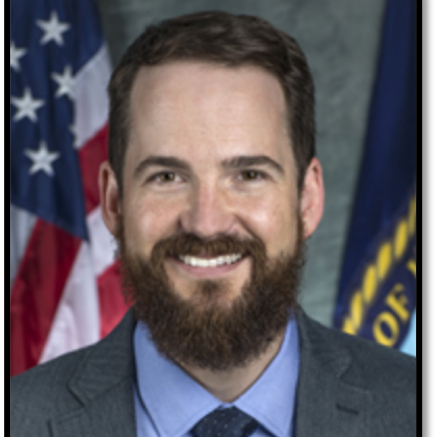ACT for Life: An experiential training on a Contextual Behavioral Approach to Suicidal Ideation and Behavior




Lauren M. Borges, Ph.D.
Geoffrey Smith, Psy.D.
Debbie Sorensen, Ph.D.
Nazanin H. Bahraini, Ph.D.


Tuesday, July 14, 2020 - 9:00 a.m. - 5:15 p.m.
Wednesday, July 15, 2020 - 9:00 a.m. - 5:15 p.m.
Competence in suicide prevention is vital to clinical practice. Yet, responding to suicide risk is often a source of tremendous stress and places therapists at odds with their clients. Respecting a client’s autonomy and maintaining therapeutic rapport can conflict with concerns for safety and practical considerations of clinician liability. Furthermore, standardized suicide risk assessment and management approaches mandated by health care organizations often promote assessment focused on the presence or absence of suicidal ideation and behavior, but fail to identify the function of suicidal thoughts and behaviors. Contextual Behavioral Science (CBS) can be used to successfully navigate these concerns to gain a nuanced and accurate understanding of the factors maintaining a client’s suicidal thoughts and behaviors (Borges et al., 2019). Acceptance and Commitment Therapy (ACT) provides a powerful and balanced approach to suicide prevention by promoting engagement in life in addition to preventing suicidal behavior by enhancing flexible thinking and emotional willingness (Barnes et al., 2017). Participants in this pre-conference training will learn how CBS, and ACT in particular, can be used to join with clients in acknowledging, understanding, and accepting pain that leads them to desire death, while still choosing an alternative - a vital and values-based life.
Case examples, role-plays, and experiential exercises will be used to expand clinicians’ repertoires for working effectively and compassionately with clients who experience suicidal ideation, while noticing their own experiences of this work. Participants will learn about common barriers to working effectively with clients considering suicide. Participants will explore systemic issues they face, as well as personal stressors they may experience in working with suicide, including burnout, caregiver fatigue, vicarious traumatization, and moral injury. Through experiential exercises and discussion, participants will explore their own internal responses and behavior patterns in working with suicide. Methods for responding effectively to common barriers will be discussed, and clinicians will be invited to be mindful of how their reactions to suicidal thoughts and behaviors may influence clinical decision making.
The empirical literature supporting the use of ACT with clients at risk of suicide will be reviewed. Participants will then learn about ACT for Life, a treatment protocol developed for clients at high risk of suicide, but also applicable to clients at low to moderate suicide risk. The facilitators of the training developed ACT for Life through a formative evaluation with experts in ACT and suicidology, and a randomized acceptability and feasibility study recently provided empirical support for ACT for Life. The ACT for Life protocol combines CBS functional assessment practices (e.g., chain analysis) and gold standard suicide risk mitigation tools (e.g., safety planning) with guidance on engaging ACT processes to build vital values-based lives clients will choose to live.
Participants will learn how to conceptualize suicide from a CBS perspective and practice using functional analysis to take a process-based approach to suicide risk assessment and risk management. Specifically, they will learn how to use chain analysis to identify unique factors maintaining suicidal thoughts and behaviors. Participants will practice building on the information gleaned from chain analysis to create a conceptualization of a client’s suicide risk and develop a treatment plan to disrupt behavior maintaining suicidal thoughts and behaviors. In addition to identifying opportunities to prevent suicidal ideation and behavior from interfering with functioning, participants will practice identifying values worth living that are connected to the suffering maintaining suicidal ideation and behavior. Treatment planning will include guidance on using emotional pain and related values to inform committed actions that will build a meaningful life. Participants will also learn about key components of documenting functional suicide risk assessments to meet standards of care and prevent clinician fear from impacting treatment.
Safety planning (i.e., assisting clients in making a hierarchical list of plans to cope with a suicidal crisis) has become the standard of care in suicide prevention and can be a useful tool for managing suicide risk, while engaging in deeper therapeutic work to address the function of suicidal thinking and behavior. However, safety plans often focus on avoidance or reduction of unwanted thoughts and emotions, and may seem inconsistent with CBS interventions that emphasize acceptance. Additionally, safety plans do not typically include material tailored to the client’s values. Participants will learn how CBS/ACT-consistent safety plans are created in ACT for Life.
Participants in the training will then practice engaging ACT processes in role plays that integrate idiographic information to specifically disrupt factors that are maintaining suicide risk and preventing engagement in meaningful behavior. Facilitators will demonstrate how to transform hopelessness about life into hopelessness about unworkable attempts at control, including suicide. Finally, participants will discuss useful experiential exercises, metaphors, and bold moves to lead clients in turning toward a life worth living.
About Sean M. Barnes, Ph.D.:
Sean M. Barnes, Ph.D. is a clinical research psychologist at the Rocky Mountain Mental Illness Research, Education, and Clinical Center (MIRECC) for Veteran Suicide Prevention and an assistant professor in the Department of Psychiatry at the University of Colorado Denver School or Medicine. As a principal investigator at the Rocky Mountain MIRECC, Sean contributes to the MIRECC's mission to prevent Veteran suicide through research, consulting, assessment, and treatment. Sean has published and presented nationally on a wide range of topics, including contextual behavioral approaches to working with moral injury and suicide risk. Sean is an ACT for Depressed Veterans provider and the principal investigator of the ACT for Life study, testing a brief ACT protocol for maximizing recovery after suicidal crises. Other aspects of Sean's research focus on ACT for Moral Injury, suicide risk assessment, and computerized interventions, but all of his projects share a common goal of alleviating suffering and helping others build vital meaningful lives.
About Lauren M. Borges, Ph.D.:
Dr. Lauren M. Borges is a clinical research psychologist at the Rocky Mountain Mental Illness Research, Education, and Clinical Center (MIRECC) for suicide prevention. She holds an academic appointment of assistant professor in the Department of Psychiatry at the University of Colorado School of Medicine. Dr. Borges’ primary line of research concerns the use of contextual behavioral interventions to help individuals approach emotions like guilt and shame more flexibly. She is a principal investigator on a federally funded study focused on investigating the acceptability and feasibility of Acceptance and Commitment Therapy for Moral Injury (ACT-MI) and a co-investigator on an intervention applying ACT to cultivate flexible responding to suicidal ideation and behavior. She is also interested in using functional analysis (in particular the chain analysis skill from Dialectical Behavior Therapy) to help individuals identify and intervene on their suicidal behavior more efficiently and effectively. Beyond her focus on interventional research, Dr. Borges is developing and validating novel approaches to measuring facets of responding to guilt and shame.
About Geoffrey Smith, Psy.D.:
Dr. Geoff Smith has been a clinical psychologist and administrator working with adults with acute and chronic mental illness since 2001. His experience spans from Community Mental Health Center program administration and development to Veterans Affairs Medical Center psychiatric unit administration, clinical services and senior leadership.
He is currently the Section Chief of Inpatient and Specialty Mental Health Programs for the Denver Veterans Affairs Medical Center. Past projects include developing Veteran programs for Peer Support Specialists providing health coaching on an inpatient psychiatric unit, developing Psychiatric step-down services, and using evidence based psychotherapy for suicide prevention. He is the psychological Incident Commander for the VA Critical Incident Response Team and Workplace Violence Prevention Programs. He provides numerous seminars and presentations across various MH staff disciplines and is a faculty instructor for the Psychiatry Department at the University of Colorado Health Sciences Center.
About Debbie Sorensen, Ph.D.:
Debbie Sorensen, Ph.D. is a clinical psychologist in Denver, Colorado. She has a Ph.D. in Psychology from Harvard University and a bachelor’s degree in Psychology and Anthropology from the University of Colorado, Boulder. She is a psychologist in the Spinal Cord Injury/Disorders Center at the Rocky Mountain Regional VA Medical Center, where she works with veterans with spinal cord injuries and chronic health conditions and trains psychology doctoral students. She is a nationally-recognized VA Regional Trainer and Training Consultant in Acceptance and Commitment Therapy (ACT). She has a private practice in Denver, and is a co-founder the ImpACT Psychology Colorado collective. She has been a lecturer at Harvard University in the Department of Psychology, and is a co-host of the popular podcast Psychologists Off the Clock.
About Nazanin H. Bahraini, Ph.D.:
Dr. Bahraini is a Clinical Research Psychologist and Director of Education at the Rocky Mountain MIRECC for suicide prevention. In addition, she is an Associate Professor of Psychiatry and Physical Medicine and Rehabilitation at the University of Colorado School of Medicine. Her research focuses on understanding factors that promote functional improvement and recovery among Veterans with chronic physical and mental health conditions. Along these lines, she is interested in how the principles and core processes underlying Acceptance and Commitment Therapy (ACT) relate to suicide, and how this knowledge can inform ACT based interventions to improve functioning and decrease suicide risk in indicated populations (i.e., Veterans hospitalized for suicide risk).
Learning Objectives:
Following this workshop participants will be able to:
- Explain the phenomenon of suicide from a contextual behavioral perspective.
- Describe personal and therapist barriers to working collaboratively with clients to effectively manage suicide risk.
- Practice using functional suicide risk assessment to inform an idiographic approach to case conceptualization and intervention.
- Identify critical components of suicide risk assessment documentation.
- Guide clients in creating CBS/ACT-consistent safety plans.
- Discuss the empirical support for using ACT with clients at risk of suicide.
- Describe the primary treatment goals of ACT for Life.
- Demonstrate creative hopelessness work appropriate for a client at high risk of suicide.
- Incorporate client-specific drivers of suicidal thoughts and behaviors into ACT experiential exercises highlighting intervening on the function these behaviors serve at the level of the individual.
- Learn to help clients clarify and pursue their values in the presence of tremendous psychological pain and use committed action work to build vital lives clients will choose to live.
Target Audience: Beginner, Intermediate, Advanced, Clinical
Components: Conceptual analysis, Literature review, Original data, Experiential exercises, Didactic presentation, Role play
Package Includes: A general certificate of attendance, lunch, and twice daily coffee/tea break on site.
